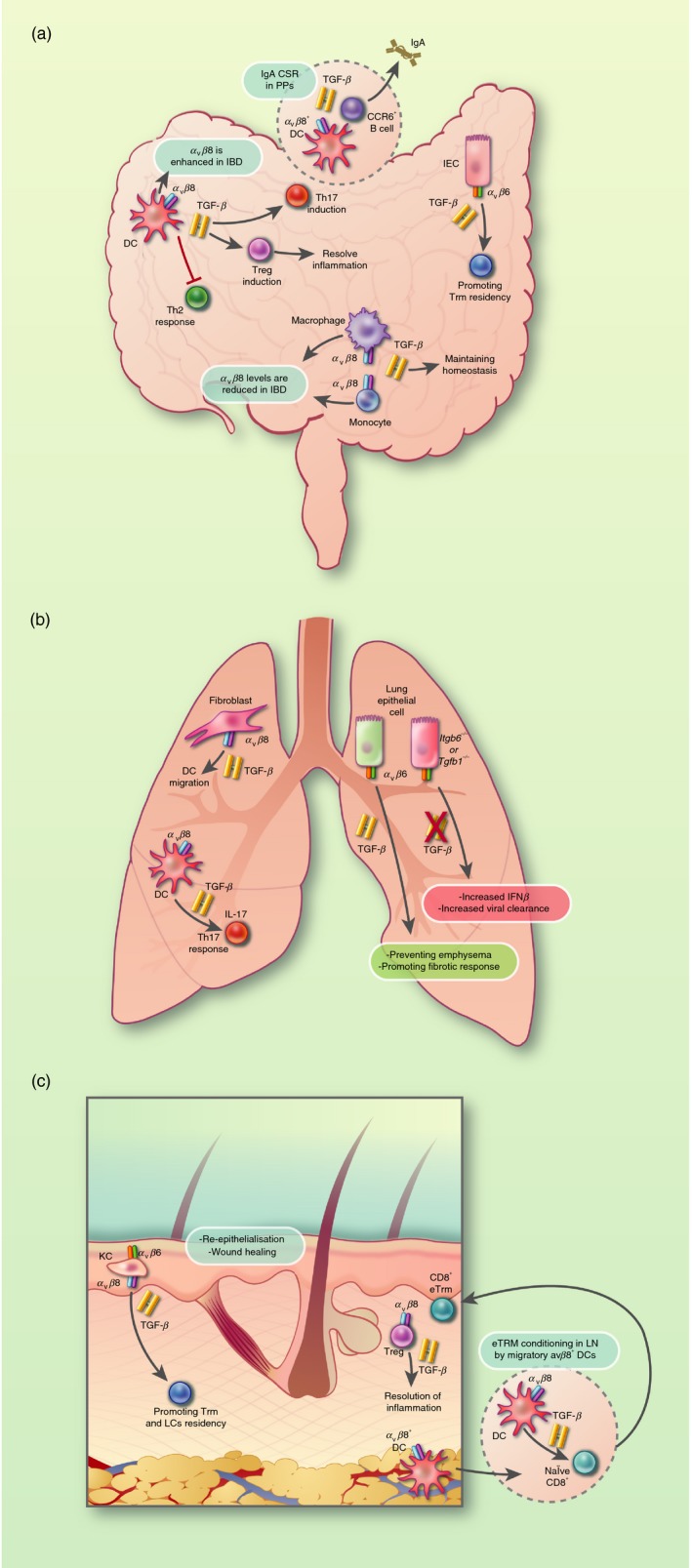Figure 2.

Transforming growth factor‐β (TGF‐β) activated by integrins α v β 6 and α v β 8 has important functions at barrier sites. (a) Dendritic cells (DCs) are capable of activating latent TGF‐β through their expression of the integrin α v β 8, which modulates intestinal CD4+ T helper (Th) cell responses and Foxp3+ regulatory T (Treg) cells. In inflammatory bowel disease (IBD), α v β 8 expression is enhanced on DCs, whereas it is reduced on monocytes and macrophages. TGF‐β activation by integrin α v β 6 by intestinal epithelial cells (IECs) has been shown as a critical factor involved in the maintenance of intestinal tissue‐resident memory (Trm) cells. (b) In the lung, activation of TGF‐β by α v β 8‐expressing fibroblasts has been shown to drive DC chemotaxis. Moreover, integrin α v β 8‐expressing DCs appears to be required for the differentiation of Th17 cells. Integrin α v β 6‐mediated activation of latent TGF‐β by lung epithelial cells is a critical component of pulmonary homeostasis via preventing emphysema, whereas excessive TGF‐β signalling can facilitate pulmonary fibrosis in idiopathic pulmonary fibrosis (IPF) and promote infection. (c) Integrins α v β 6 and α v β 8 play an essential role in maintaining the cutaneous barrier in the skin. α v β 6‐mediated activation of latent TGF‐β by keratinocytes (KCs) is essential for re‐epithelialization and wound healing. Moreover, activation of latent TGF‐β by integrins α v β 6 and α v β 8 by KC in the epidermis are important for the maintenance of both Trm and Langerhans cells (LCs) in the skin. α v β 8 expression on regulatory T (Treg) cells is required to prevent overt effector T‐cell responses during acute inflammation. Migration of integrin α v β 8‐expressing DCs to skin‐draining lymph nodes is also important in imprinting CD8+ T cells to become CD8+ Trm cells.
